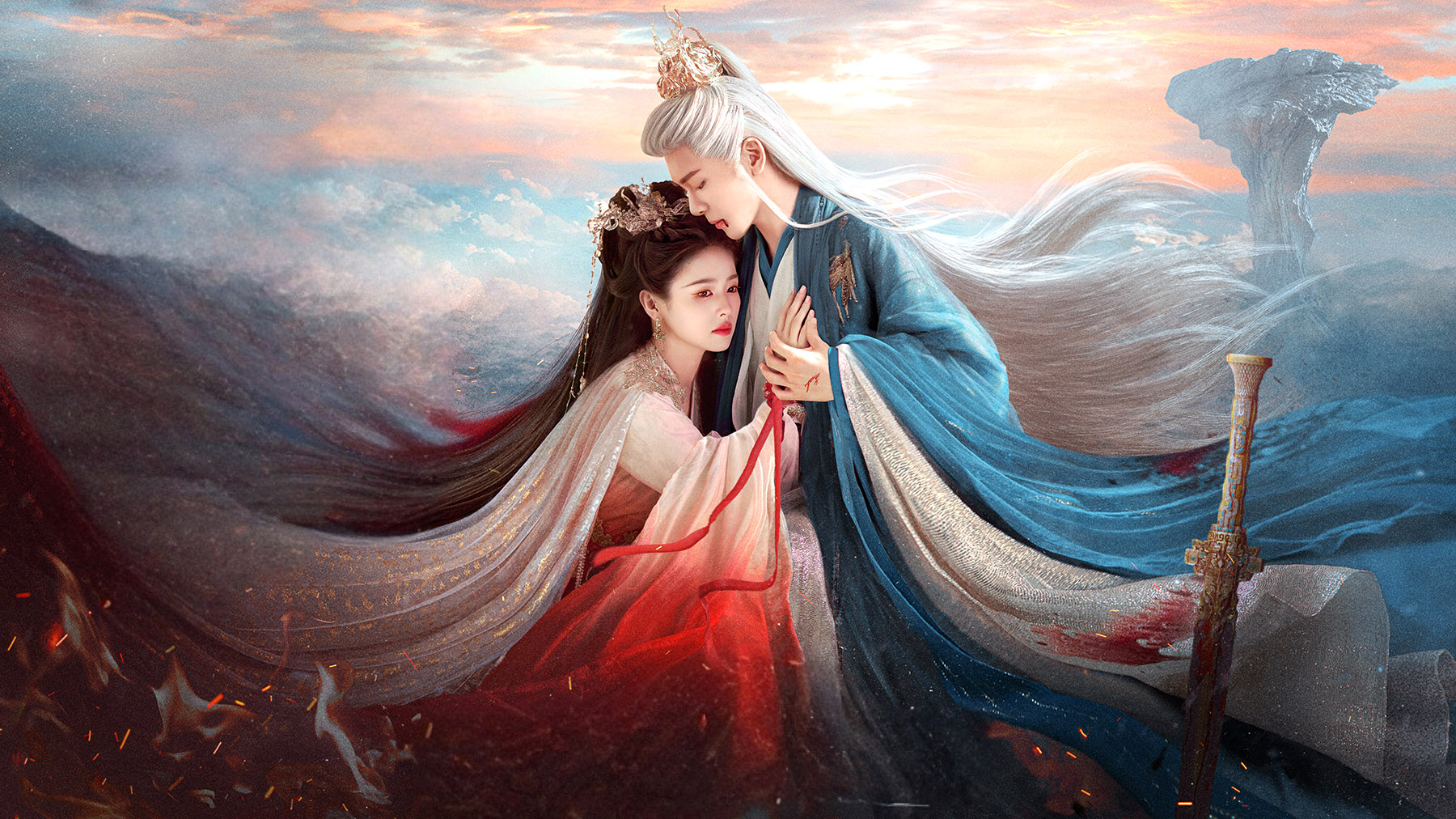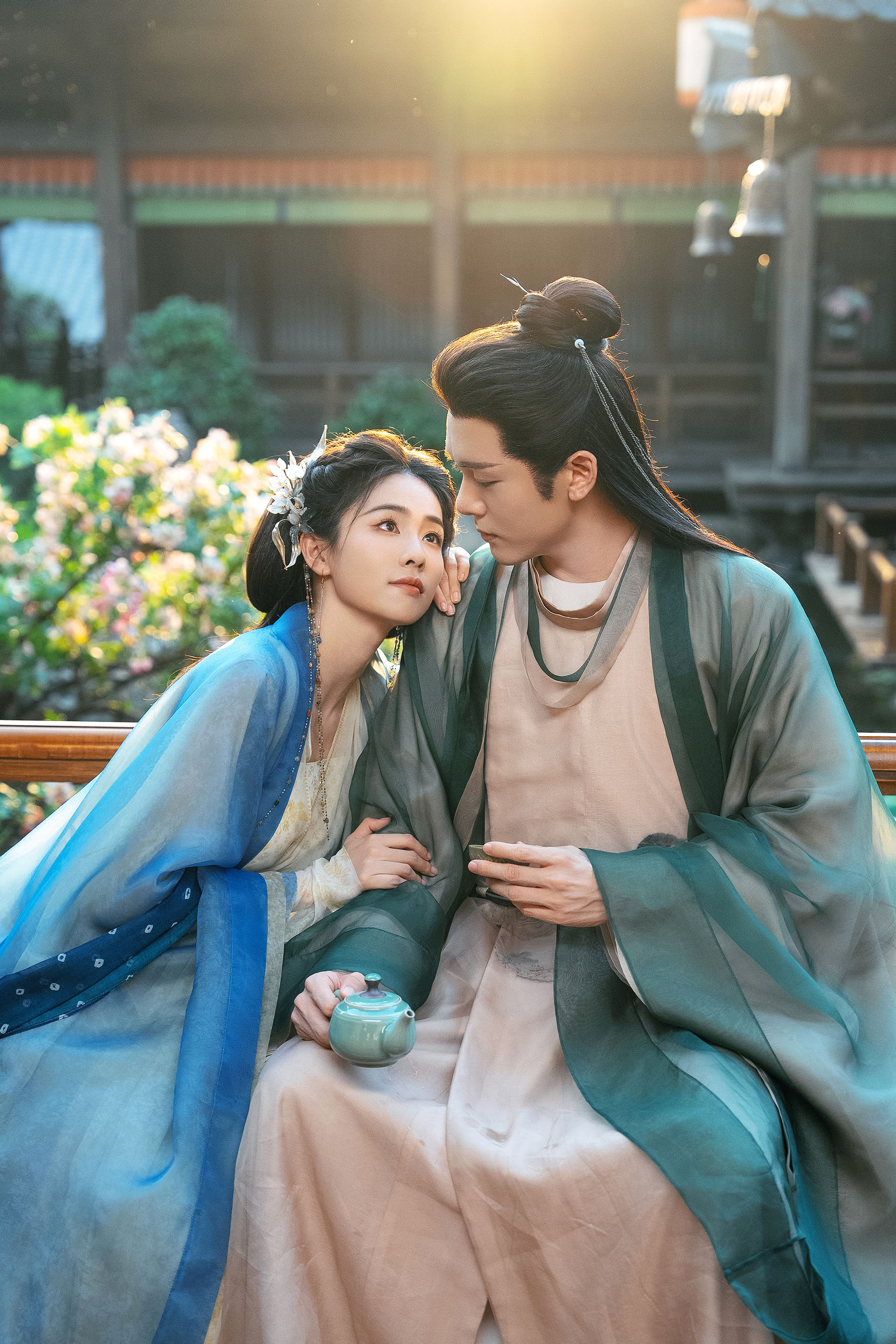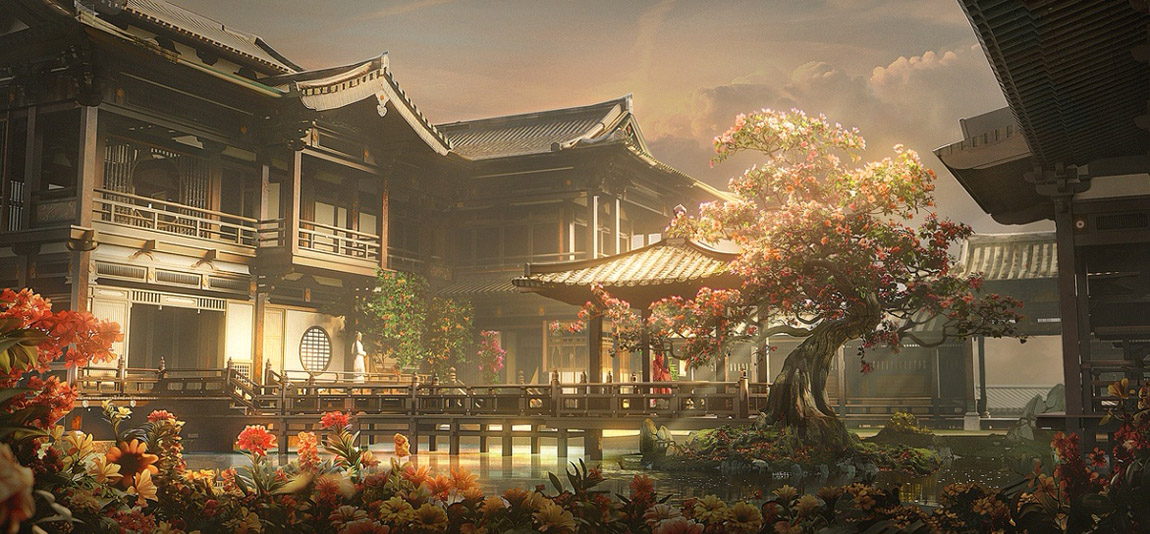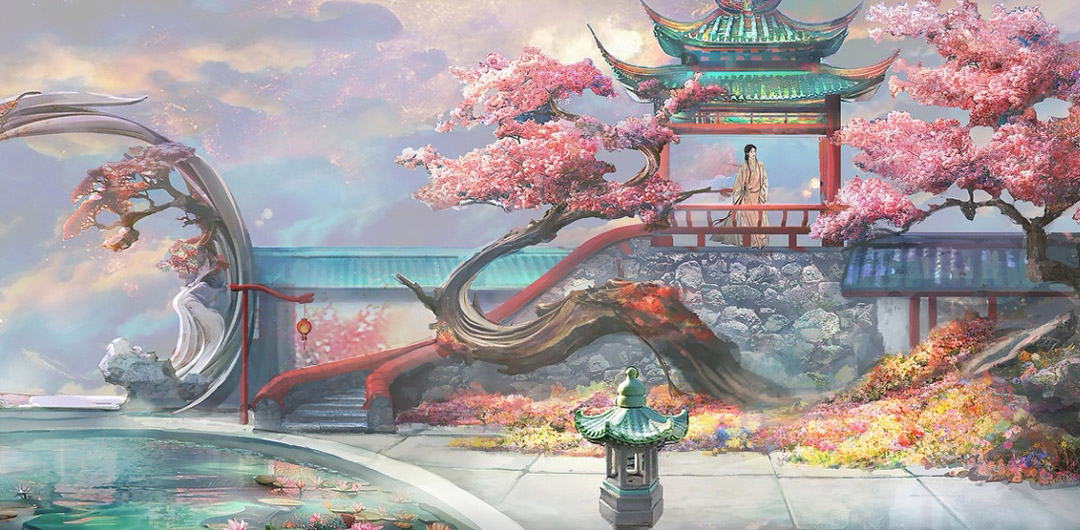Popular xianxia drama rooted in tradition and ancient literature makes a splash overseas, Xu Fan reports.

Dressed in a flowing white gown styled in ancient Chinese fashion, a musician sits gracefully on a street in Italy, her eyes veiled by a green cloth. As her bow glides across the erhu — a traditional two-stringed instrument — a haunting melody fills the air, drawing a crowd of curious onlookers, many of whom lift their smartphones to record the moment.
The scene, captured in a viral clip, has amassed over 34,000 likes on the social media platform Xiaohongshu, also known as Red-Note. The artist is playing the music of the theme song from Feud, a popular xianxia drama, a genre exclusive to China that blends mythological, fantastical, and martial arts elements.
As one of the most popular costume dramas this year, the series starring actress Bai Lu and actor Zeng Shunxi has been released domestically and overseas on multiple major platforms like Netflix and Rakuten Viki, reaching foreign markets including North America and South Korea.
READ MORE: Grand Canal stars in hit TV show
It topped ratings in 15 countries and regions during its streaming period, according to Dongyang Huanyu Entertainment, the producer.
Guo Hao, who codirects the drama with Zhi Lei, tells China Daily that he received the script two years ago and was instantly captivated by its twist-filled storyline. He quickly finished the entire script of around 400,000 Chinese characters.

Unlike most traditional fantasy dramas, Feud takes an innovative approach by incorporating suspense and overlapping timelines, presenting the story through a nonlinear narrative.
The protagonists, Bai Jiusi and Hua Ruyue — respectively portrayed by actor Zeng and actress Bai as two celestial beings born from a single force in the mythical age of creation — possess opposing powers: as one grows stronger, the other becomes weaker. Due to a series of misunderstandings, Hua mistakenly believes that Bai heartlessly abandoned her to suffer and be tortured during a special "mission" they had once hoped would make them stronger. Consumed by resentment, she devises a complex plan to assassinate Bai. However, the truth takes an unexpected turn, revealing a heart-wrenching story.
Rooted in traditional culture and ancient literature, which offered a treasure trove of inspiration, Guo reveals that the creative team drew heavily from Shan Hai Jing (Classic of Mountains and Seas), an ancient collection of mythical geography and fantastical creatures estimated to have been compiled over 2,000 years ago.

Such instances include Mount Buzhou, a snow-capped peak described as the sole gateway between the human world and the realm of the gods, and leiniao (thunder bird), a fantastical magpie-like creature with two heads and four legs, capable of controlling fire and igniting or extinguishing flames at will.
Interestingly, the director, a veteran with over two decades in television production, reveals that the art team adopted a sci-fi-style world-building approach to envision the heavenly realm as a floating paradise beyond Earth.
After six months of preparations and discussion, the special effects team designed the celestial world with unique elements, such as aligning the sun along the same horizon as the divine realm. Celestial beings are portrayed with flowing sleeves and robes to suggest weightlessness, and are rarely shown eating, only occasionally taking a bite of some magical fruit.
"Most of the previous xianxia dramas use wild imaginations, but they don't really think through how mythological characters should move or act in a believable way. We spent a lot of time brainstorming, hoping to make it easy for the audience to tell celestial beings apart from humans," explains Guo.

Filming took place between April and August last year at Hengdian World Studios in Zhejiang province, one of China's largest film and TV production bases. Feud's cast and crew members shot some of the most challenging scenes in the scorching summer heat.
In one such scene, actor Zeng, who plays the supreme god Bai, was suspended on a complex rigging system, hung on wires and maneuvered by a crane, to simulate a fall from midair. Below him, a pond had been prepared in advance with 10 explosive devices to create a dramatic visual of the character's magical power.
"It was nearly 44 C that day, but both he and actress Bai patiently enacted the scene multiple times to get it right," recalls Guo.
Traditional Chinese architecture plays a pivotal role in shaping the visual aesthetics of the drama. According to art director Luan Hexin, the two iconic palaces serving as the residences of the protagonists have drawn inspiration from the distinctive architectural styles of Lingnan, a culturally rich region encompassing Guangdong and Hainan provinces, the Guangxi Zhuang autonomous region, and parts of Yunnan and Fujian provinces.

He also explains that the architectural elements of the heavenly palace, including its beams, pillars and windows, have drawn inspiration from artifacts of the Shang Dynasty (c. 16th-11th century BC) and the Tang Dynasty (618-907).Depicted as floating above swirling clouds and rosy mists, the palace features 200 jade-like buildings, 1,500 vivid lifelike statues, and more than 10,000 towering beams.
"For us, it felt like an exciting experiment — a way to break free from the usual cliches about fantasy worlds, and create a brand-new heavenly realm that really highlights the beauty of Chinese aesthetics," Luan adds.
ALSO READ: Theater reimagines wuxia saga
The show's success highlights the enduring appeal of xianxia dramas, a genre that rose to prominence in the early 2000s, notes He Tianping, an associate professor at the School of Journalism and Communication at Renmin University of China.
He says that these fantasy stories offer more than just entertainment, they reflect the Chinese imagination of mystical realms and uphold core values such as chivalry and universal peace, adding that the genre serves as a growing channel for sharing traditional Chinese culture with international audiences.
Contact the writer at xufan@chinadaily.com.cn


